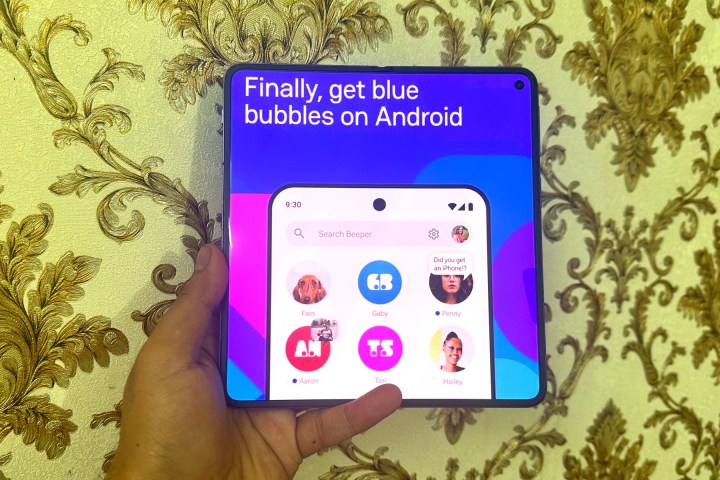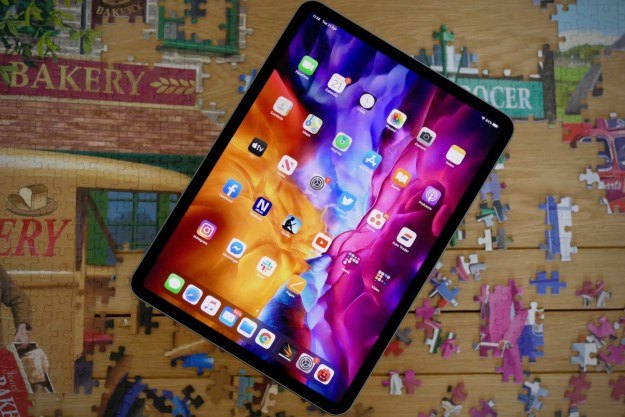
The inevitable has happened, it seems. Beeper Mini, the reverse-engineered app that brought iMessage to Android with a blue bubble hack, has apparently run into an official Apple roadblock. Within the past couple of hours, multiple users have posted online that Beeper Mini texts are not passing through.
Well, it appears that Apple is somehow blocking server access. When asked whether Apple was responsible for the outage, founder Eric Migicovsky said it was likely the case. “Yes, all data indicates that,” Migicovsky told TechCrunch.
Welp, that didn't last very long.
I'm affected on the Beeper Mini as well. I get a little toast notification that I can't reach the person if I want to write to them.
Although, the OG Beeper app still works fine. Although it's sending a message by email and not a phone number. pic.twitter.com/JG2qYisLAv
— Raven (@Razar_the_Raven) December 8, 2023
Interestingly, it appears to be a geo-locked fiasco for now. My colleague in the U.S. notes that Beeper Mini is returning a message delivery failure. Here, in India, I am currently able to send iMessage texts via Beeper Mini from an Android phone to my iPhone.
Most of the features, such as delivery status, typing indicators, and GIF reactions, also appear to be working flawlessly. However, when I try to send a message to my colleague in the U.S., the message is not received, and neither do I see a delivery or read indicator.
If it is Apple behind this, it looks like the company only applied the patch for the U.S. market, where it has the largest base of dedicated iMessage users. Digital Trends has reached out to Migicovsky for more clarity on the situation. We will update this story as soon as we hear from him.
Investigating reports that sending/receiving is not working in Beeper Mini 🔎
— Beeper (@onbeeper) December 8, 2023
It’s worth keeping in mind that despite its seemingly clean operational credentials, Beeper Mini is still an unofficial iMessage solution. Apple has historically kept iMessage from making its way to Android because the company deems it an important iPhone perk.
That gulf is why all texts between Android and Apple smartphones are downgraded to the old SMS protocol. As a result, you don’t get any of the snazzy texting features that iPhone users enjoy or that you would otherwise get on messaging platforms like WhatsApp and Telegram.
And did I mention that green text bubble situation for messages sent from an Android phone? Yeah, there’s that too. Sunbird attempted to bring iMessage on

Beeper Mini is not using any such Mac relay hack. It doesn’t ask for your Apple ID. Instead, it was the result of an iMessage reverse engineering project called Pypush. However, the entire premise of Beeper Mini was always too good to be true. All that happened without jeopardizing the safety net of end-to-end encryption for conversations.
It offered almost all the niceties of a native iPhone-to-iPhone iMessage experience. Beeper Mini even had plans to introduce FaceTime audio and video calling down the road. But it looks like those plans could take some time.
On the other hand, Apple has officially embraced the RCS protocol championed by Google. In a nutshell, messages exchanged between Android phones and iPhones won’t degrade to SMS or MMS protocols. The RCS protocol would offer the same kind of snazzy tricks at some point next year.
Editors' Recommendations
- Nomad’s new iPhone case and Apple Watch band may be its coolest yet
- 7 hidden iMessage features you need to be using
- Apple Sports app looks to rule live scores and stats on iOS
- How to save text messages on iPhone and Android
- Apple’s new iPad Pro may not be as expensive as we feared




